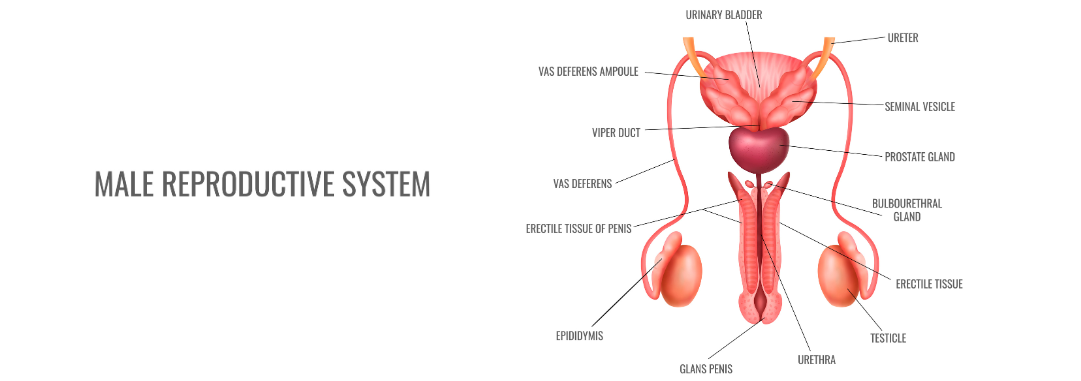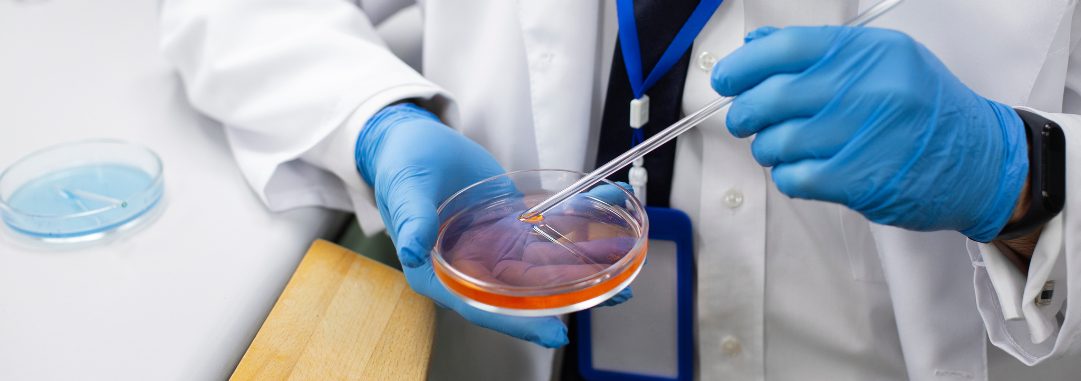This blog will give an overview of:
2. Male infertility risk factors
3. Common causes for male infertility
4. Diagnosis of male infertility
5. Treatment for male infertility
6. Male fertility doctors in Nairobi
Male fertility Doctors in Nairobi | Andrologists | Urologists | Male Fertility Specialists
The male factor contributes to between 40% and 50% of infertility cases among couples, highlighting the importance of addressing male reproductive health.
Fortunately, advancements in medicine have led to significant strides in diagnosing and treating male infertility.
Almost 99% of male infertility issues are solved with a combination of lifestyle changes and medical interventions.
By seeking help from experts, you can have a better understanding your fertility problems, explore treatment options, and ultimately achieving your dream of parenthood.
Nairobi, Kenya, offers the best fertility treatment services in Africa with a range of treatment options and access to experienced male fertility specialists.
This article will explore the complexities of male infertility, from its causes and symptoms to diagnostic procedures and treatment options.
We will also highlight a list of leading male infertility treatment specialists in Nairobi, informing you to make the best choice for you and your partner.

What is Male Infertility?
Male infertility is a reproductive condition where a male is unable to achieve pregnancy with a female partner who has the ability to conceive.
Male fertility issues may arise due to different causes. However, the most common issue is the inability to produce or deliver sufficient, healthy sperm capable of fertilising an egg.
An andrologist, urologist or male fertility specialist should perform a thorough assessment and diagnosis to determine the best male fertility treatment plan.
Male Infertility Risk Factors
Genetic, environmental, and lifestyle factors, often influence male infertility. An understanding of these risk factors is crucial for early identification, prevention, and effective treatment options for male infertility.
They include:
• A history of prostatitis or genital infections can impact sperm quality and quantity.
• Physical trauma resulting in testicular injuries can damage sperm production and delivery.
• Surgical interventions such as hernia repair, while common, can sometimes damage the spermatic cord or testicles.
• Undescended testicles, a condition present at birth, could increase the risk of infertility due to abnormal sperm development.
• Medication can have adverse effects on sperm production, motility, or overall reproductive health.
• Lifestyle factors including cigarette smoking, excessive alcohol consumption, and drug use can harm sperm health.
• High temperatures around the genital area and exposure to toxins can negatively impact fertility.
• Testosterone supplementation products, when misused, can suppress natural sperm production.

Common Causes for Male Infertility
Having knowledge of the common causes for male infertility is important for taking preventive measures where possible and choosing the most effective treatment.
These include:
• Erectile dysfunction hinders the ability to achieve or maintain an erection suitable for intercourse.
• Ejaculatory dysfunction includes retrograde ejaculation (where semen enters the bladder) and premature ejaculation.
• Testicular damage from injury, infection, or cancer treatments can impair sperm production.
• Prostatectomy surgery can lead to infertility, erectile dysfunction, and incontinence due to nerve damage.
• Chronic illnesses such as STIs, multiple sclerosis and diabetes can interfere with sexual function and sperm quality.
• Immune system disorders can produce antibodies that attack sperm, reducing their viability to fertilise an egg.
• Sperm disorders encompass issues with sperm count, motility, and shape affecting fertilisation capacity.
• Obstructive infertility occurs when sperm cannot reach the ejaculatory opening due to blockages in the reproductive tract.
• Hormonal imbalances can disrupt sperm production, sexual function, and overall reproductive health.
• Lifestyle and environmental factors include poor nutrition, alcohol & drug abuse, prescribed medication, age (men who are 40+ years could be less fertile)
Read our article on Top 5 Urologists in Nairobi
Diagnosis of Male Infertility
Diagnosing male infertility requires a comprehensive medical evaluation by a urologist, andrologist or male fertility specialist to determine the root cause of your reproductive challenges.
These may include:
• Medical history provides insights into past illnesses, surgeries, medications, and lifestyle factors that may impact fertility.
• Physical examination assesses overall health, genital development, and identifies any abnormalities in the reproductive system.
• Laboratory tests help identify underlying hormonal or genetic causes of infertility.
• Semen analysis evaluates sperm count, motility, and morphology to assess fertility potential.
• Transrectal ultrasound visualises the prostate and surrounding structures to detect abnormalities or infections.
• Testicular biopsy is performed to examine testicular tissue for abnormalities or cancer, though primarily used for cancer diagnosis.
Treatment for Male Infertility
Male infertility can be treated through different methods. The choice of treatment often depends on the severity of the infertility, the specific diagnosis made by the male fertility specialist, and the couple's individual preferences.
Medical Treatment Options for Male Infertility
• Medication also known as medical therapy, can correct certain conditions such as retrograde ejaculation, immune system disorders, and hormonal imbalances.
Assisted Reproductive Technology (ART) Treatment Options for Male Infertility
• Intrauterine insemination (IUI) deposits sperm directly into the uterus to increase the chances of fertilisation.
• In vitro fertilisation (IVF) combines egg and sperm in a laboratory to create embryos for transfer to the uterus.
• Intracytoplasmic sperm injection (ICSI) injects a single sperm into an egg for fertilisation, used when sperm count is low.
• Testicular sperm extraction (TESE) retrieves sperm directly from the testicles for use in IVF or ICSI.

Surgical Treatment Options for Male Infertility
• Vasectomy reversal reconnects the vas deferens to restore fertility, often requiring microsurgical techniques.
• Varicocelectomy is a minimally invasive outpatient procedure employed to correct enlarged veins in the scrotum (varicoceles).
• Obstruction repair surgery restores the normal flow of sperm by clearing blockages in the male reproductive tract, increasing the chances of natural conception.
6 Best Male Fertility Doctors in Nairobi
1. Dr Eric Mutungi Mutiso
Dr Eric Mutungi Mutiso is a leading urologist with over 15 years of experience providing exceptional care to patients both locally and internationally. Renowned for his expertise in male reproductive disorders, including erectile dysfunction, he has successfully treated countless patients.
A pioneer in minimally invasive surgical techniques, Dr Mutungi performs laparoscopic procedures for conditions such as hernia, ensuring minimal discomfort and rapid recovery. His patient-centred approach and commitment to optimal outcomes have solidified his reputation as one of Kenya’s foremost urological specialists.
2. Dr Samson Misango
Dr Samson Misango is a urologist in Nairobi, Kenya, with over 28 years of experience. He is the founder of the Medical Surgical and Urology Centre (MESU) and is an expert in treating male infertility.
Dr Misango offers minimally invasive procedures for male infertility treatment options that require surgical intervention. He works with a team and uses the latest medical technology to provide better treatment outcomes for his patients.
3. Dr Rajesh Chaudhary
Dr Rajesh R. Chaudhary is a leading male fertility specialist and andrologist with over 15 years of experience. He is the founder of The Male Sexual Health Wellness Clinic in Nairobi, which specialises in providing comprehensive, personalised care for male reproductive and sexual health.
Dr Chaudhary is renowned for his patient-centred approach. With a holistic view of urology and andrology, he is committed to delivering exceptional care tailored to the specific needs of each patient.
Book a male fertility consultation with Dr Rajesh Chaudhury through a patient support specialist.
4. Dr Aideed Kahie
Dr Aideed Kahie is a distinguished urologist in Nairobi who is renowned for delivering world-class urological care. With a patient-centric philosophy at the core of his practice, Dr. Kahie is committed to understanding each patient's unique needs and tailoring male infertility treatment plans accordingly.
Dr Kahie specialises in treating male reproductive conditions, including erectile dysfunction, premature ejaculation, and infertility. His in-depth knowledge and advanced techniques ensure that patients receive the highest quality care available.
Talk to a patient support specialist to book an appointment with Dr Aideed Kahie.
5. Prof. Peter Ndaguatha
Prof. Peter Ndaguatha is a senior urologist in Nairobi who has over 45 years of dedicated service. His expertise lies in providing patient-centred urological and surgical care while pioneering advancements in the field through research and innovation.
A pioneer in laparoscopic and minimally invasive procedures, Prof. Ndaguatha offers exceptional urological care characterised by reduced pain, minimal scarring, shorter hospital stays, and lower complication risks. Beyond clinical excellence, he is actively engaged in community outreach programs focusing on men's health.
Book a male fertility appointment with Prof. Peter Ndaguatha through a patient support specialist.
6. Dr Sarita Sukhija
Dr Sarita Sukhija is a distinguished fertility specialist with 25 + years of dedicated practice in Nairobi. She is the founder of Myra IVF Clinic. Dr Sukhija has established a proven track record of success in of Assisted Reproductive Technology (ART) procedures.
Her specialised treatments for male infertility, including low sperm count, have transformed the lives of countless couples. Dr Sukhija's comprehensive ART treatment for male infertility includes IVF, Intra-Cytoplasmic Sperm Injection (ICSI), TESA, TESE, PESA, and Testicular Biopsy.


